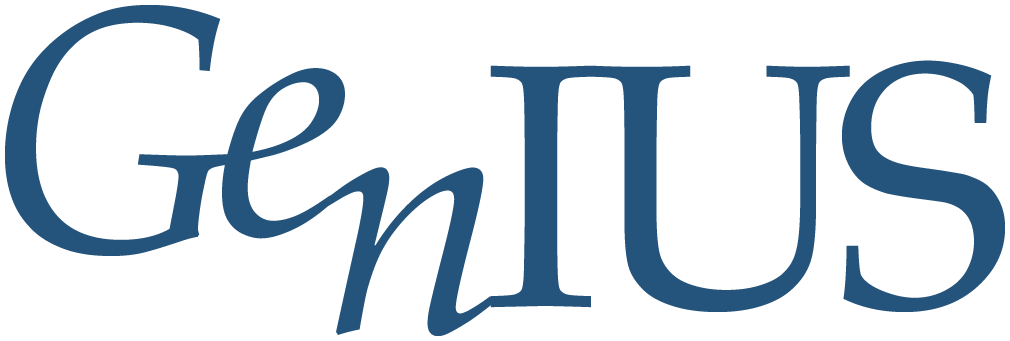Consiglio d’Europa: Risposta in data 16 gennaio 2008 alla raccomandazione 211 del 2007
Atti del Consiglio d’Europa: Risposta alla raccomandazione 211 (2007) del Congresso dei poteri locali e regionali del Consiglio d’Europa sulla “Libertá di espressione e di assemblea per le lesbiche, i gays, bisessuali e transessuali”
Autorità: Autorità europee – Consiglio d’Europa: Comitato dei Ministri
Data: 16/01/2008
Oggetto: Come il Congresso, il Comitato dei Ministri ritiene che le collettività locali giuochino un ruolo centrale per la difesa dei diritti dei cittadini alla libertà di riunione e di espressione. Il Comitato invita tutti gli Stati membri ad applicare le sue Raccomandazioni n. R (97) 20 sui « discorsi dell’odio » e n. R (97) 21 sui media e la promozione di una cultura della tolleranza nei confronti di omosessuali, bisessuali e transessuali.
Reply to Recommendation 211 (2007) of the Congress of Local and Regional Authorities of the Council of Europe on “Freedom of assembly and expression for lesbians, gays, bisexuals and transgender persons”
(Adopted by the Committee of Ministers on 16 January 2008
at the 1015th meeting of the Ministers’ Deputies)
1. The Committee of Ministers has given careful consideration to Recommendation 211 (2007) of the Congress of Local and Regional Authorities of the Council of Europe on “Freedom of assembly and expression for lesbians, gays, bisexuals and transgender persons”. It has brought the recommendation to the attention of the governments of the member states and has forwarded it to the Council of Europe Commissioner for Human Rights for information as well as to the Steering Committee for Human Rights (CDDH), the Steering Committee on the Media and New Communication Services (CDMC) and the Steering Committee on Local and Regional Democracy (CDLR), for information and possible comments. The comments received are appended to this reply.
2. The Committee of Ministers underlines that tolerance is a universal value, inseparable from a principle which is also universal, that of the equal dignity of all human beings. The Council of Europe is promoting a clear message of tolerance and non-discrimination. In particular, the Committee of Ministers shares the Congress’s concerns about the right to freedom of assembly and expression for lesbian, gay, bisexual and transgender persons (LGBT) in a number of Council of Europe member states. The right to freedom of expression, in particular to share and express one’s identity, is fundamental to promoting diversity and tolerance in society. The Committee of Ministers refers to its Recommendation No. R (97) 21 on the media and the promotion of a culture of tolerance, which underlines the importance of professional media practice and responsibility in protecting various groups and individuals from negative stereotyping and in reflecting their positive contributions to society. It also recalls that pursuant to Article 10 of the European Convention on Human Rights, the state is the ultimate guarantor of the right of everyone to hold opinions and to receive and impart information and ideas without interference by public authorities.
3. Concerning freedom of assembly, the Committee of Ministers recalls that, while the Convention allows for restrictions on the exercise of the rights to freedom of expression and freedom of assembly, such restrictions must be prescribed by law and be necessary in a democratic society in the interest of national security or public safety, for the prevention of disorder or crime, for the protection of health or morals or for the protection of the rights and freedom of others. According to the established case law of the European Court of Human Rights, peaceful demonstrations, be they in favour of the rights of LGBT persons or others, cannot be banned simply because of the existence of attitudes hostile to the demonstrators or to the causes they advocate. On the contrary, the state has a duty to take reasonable and appropriate measures to enable lawful demonstrations to proceed peacefully. In a series of judgments, the Court has emphasised that any discrimination based on sexual orientation is contrary to the Convention.16 All member states must observe the Convention when they apply national law, notably in the light of the case law of the Court.
4. Like the Congress, the Committee of Ministers believes that local authorities play a central role in upholding their citizens’ rights to freedom of assembly and expression. It recalls that its Recommendation No. R (97) 20 on “hate speech” asserts that public authorities and institutions have a “special responsibility to refrain from statements (…), speech (…) and other forms of discrimination or hatred based on intolerance” (Principle 1), especially when it is disseminated through the media. Any legitimate interference with freedom of expression should be “narrowly circumscribed and applied in a lawful and non-arbitrary manner on the basis of objective criteria (and) subject to independent judicial control” (Principle 3).17 In this context the Committee of Ministers wishes to invite all member states to implement its Recommendation No. R (97) 20 on “hate speech” and Recommendation No. R (97) 21 on the media and the promotion of a culture of tolerance in respect of lesbians, gays, bisexuals and transgender persons.
5. Finally, the Committee of Ministers refers to its reply to Written Question No. 524 by Mrs Acketoft on “Ban on a Chişinau demonstration by homosexuals” and to its intention to enhance Council of Europe action in this area.
Appendix to the reply
Comments of the Steering Committee on the Media and New Communication Services (CDMC)
The Steering Committee on the Media and New Communication Services (CDMC) fully supports and shares the views and recommendations of the Congress of Local and Regional Authorities of the Council of Europe.
The CDMC is deeply concerned by the homophobic incidences in a number of member states against lesbians, gays, bisexuals and transgender persons. Irrespective of sexual orientation, it is of paramount importance that all human beings are treated equally with respect and dignity.
The rights and freedoms of all persons, including lesbians, gays, bisexuals and transgender persons, are vital for true democracy. The right to freedom of expression, in particular to share and express one’s identity, is fundamental to promoting diversity and tolerance in society. In this regard, the media plays an important role in promoting understanding, social cohesion, cultural diversity and tolerance by enabling lesbians, gays, bisexuals and transgender persons to make their views heard.
In this context, the CDMC recalls Committee of Ministers’ Recommendation No. R (97) 21 on the media and the promotion of a culture of tolerance, which underlines the importance of professional media practice and responsibility in protecting various groups and individuals from negative stereotyping and in reflecting their positive contributions to society.
The CDMC reasserts that, pursuant to Article 10 of the European Convention on Human Rights, the state is the ultimate guarantor of the right of everyone to hold opinions and to receive and impart information and ideas without interference by public authorities. This includes the positive obligation for the state to provide effective protection and ensure respect for lesbians, gays, bisexuals and transgender persons who wish to assemble and express themselves, even if their views are unpopular or are not shared by the majority of society.
The CDMC is extremely concerned by the “many cases” in member states where state authorities have endorsed and even supported or perpetuated discrimination against lesbians, gays, bisexuals and transgender persons. Such interference by public authorities runs contrary to Article 10 of the European Convention on Human Rights and the case law of the European Court of Human Rights.18, 19
The Committee of Ministers’ Recommendation No. R (97) 20 on “hate speech” asserts that public authorities and institutions have a “special responsibility to refrain from statements (…), speech (…) and other forms of discrimination or hatred based on intolerance” (Principle 1), especially when it is disseminated through the media. Any legitimate interference with freedom of expression should be “narrowly circumscribed and applied in a lawful and non-arbitrary manner on the basis of objective criteria (and) subject to independent judicial control” (Principle 3).
In this connection, the CDMC welcomes the Congress’ reference to the Committee of Ministers’ Recommendation No. R (97) 20 on “hate speech” which provides an excellent basis on which to ask member states to take a public stand against discrimination against sexual minorities in line with the principles of the recommendation (point 7.a.), to investigate and, where necessary, prosecute criminal offences against or related to lesbians, gays, bisexuals and transgender persons (point 7.c.) and to ensure that any legal interference with freedom of expression is inter alia no more restrictive than necessary (point 7.e.).
In the framework of the Congress’ recommendations, the CDMC would suggest that member states are invited both to take note of and implement Committee of Ministers’ Recommendation No. R (97) 20 on “hate speech” and Recommendation No. R (97) 21 on the media and the promotion of a culture of tolerance in respect of lesbians, gays, bisexuals and transgender persons.



